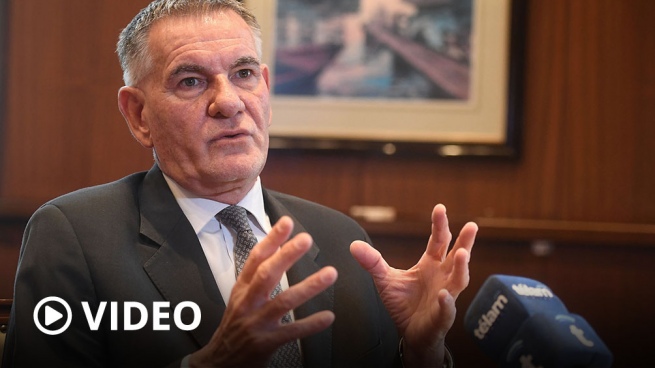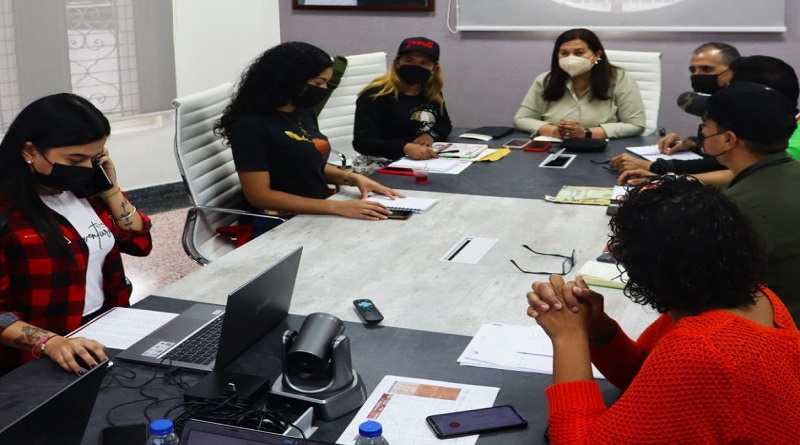Castagneto confirmed that earnings preview comes out tomorrow and will raise close to $250 billion
WATCH VIDEO
The head of the Federal Administration of Public Revenues (AFIP), Carlos Castagneto, anticipated that this Tuesday the advance of profits that will reach the highest-income companies will be made official, for which it is expected to collect more than “$ 250,000 million”, and denied that it is “a new tax”.
“I want it to be very clear that this is not a new tax. It is about what corresponds to pay in income tax (IIGG) already determined, not about presumed income,” Castagneto said. in an interview with Télam.
In that sense, the official specified that the initiative will reach “1% of the companies that pay the IIGG. If they exceed $300 million, they will be asked for an advance of 25% and if they exceed $100 million, it will be 15%. What we do is advance the payment three or four months of the IIGG”.
The extraordinary advance of the IIGG was announced days ago by the Minister of Economy, Sergio Massa, to achieve the objective of financing the reinforcement for retirees “without affecting the order of our accounts”, as specified in his official Twitter account.
On the other hand, the new head of the AFIP indicated that Argentina needs “comprehensive tax reform” since over the years they were generated “partial modifications and there was no comprehensive solution of taxes in general”. As an example, the authority mentioned the changes in the non-taxable minimum income and in the monotax regime, among others.
However, Castagneto pointed out that “A change in tax laws in general requires a very serious and long-term treatment, it is not easy to make a new system” and he said that the issue must be addressed “very seriously” and jointly between the ruling party, the opposition and specialists.
In this sense, the official stated that they will go “fishing out of the fishbowl” in order to find those who evade and broaden the taxpayer base. “If you live in a place and pay for personal property and your neighbor does not, or you have a field and a yield and the one next door does not pay, that bothers”he added about it.
Asked about the imprint that will be left on his management at the head of the organization, Castagneto specified that he wants “a dynamic organization that does not remain in what has already been done or in what has given results” and highlighted the need to have “a training permanent” to meet the challenges of a rapidly changing world.
Simplify procedures and make an AFIP more “friendly and understandable” For taxpayers, these are some of the objectives that Castagneto pointed out as more immediate and pointed to a redesign of the website and an improvement in its operation, among other initiatives.
He also announced the signing of agreements with the provinces so that “the tax charged for the registration of the manual book is distributed directly to the jurisdictions” and mentioned the signing of agreements with other State agencies to monitor “in satellite and digital form the 2,300 municipalities and the 3,000 satellite towns”.
Regarding the problem of over-invoicing of imports and under-invoicing of exports denounced by Minister Massa, which generated a loss of around US$ 1,300 million for the State, Castagneto announced that “work is being done with Customs to have traceability regarding products and exports and imports.”
On the day of his inauguration, Massa said that the government was going to work to implement “a foreign trade traceability system for greater control and transparency in the use of foreign currency.”
“That is our cooperation with the BCRA regarding the flows that leave and enter Argentina”assured Castagneto.
Asked about the level of evasion in Argentina compared to the region and the OECD countries, the official maintained that “it is at a medium level” and, regarding the national tax burden, he stated that “there are many countries that have many more taxes”.
Finally, Castagneto anticipated that they are working on initiatives to achieve less use of cash: “In Argentina there is a long tradition of using cash. We have to try to reduce that amount.”
In this context, he explained that “The trend towards bankarization that was accelerated by the pandemic continues, but it is not growing exponentially. For example, the DNI account is used a lot. We are going to talk to the banks so that they give instruments more easily.”
Finally, the accountant from La Plata revealed that they are focusing on digitization and the proliferation of digital platforms and the companies linked to them.
“We see that there are service companies that collect from different providers at an international level and we have to see what happens with that fund, how it is rotated, what remains in Argentina and what is taxed. We are going to put a lot of emphasis on that. Sometimes under-invoicing also happens through these new transaction methods,” he concluded.








